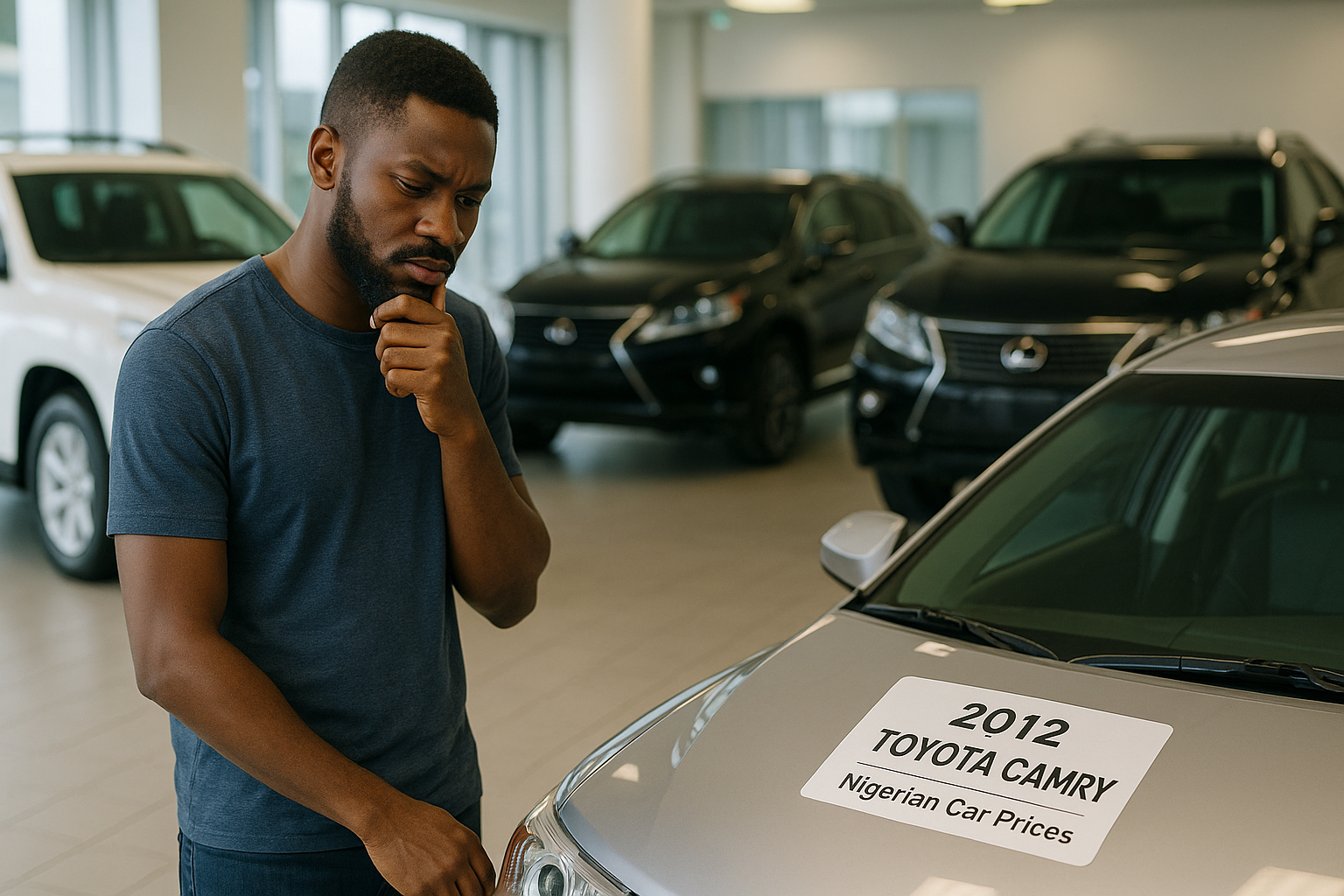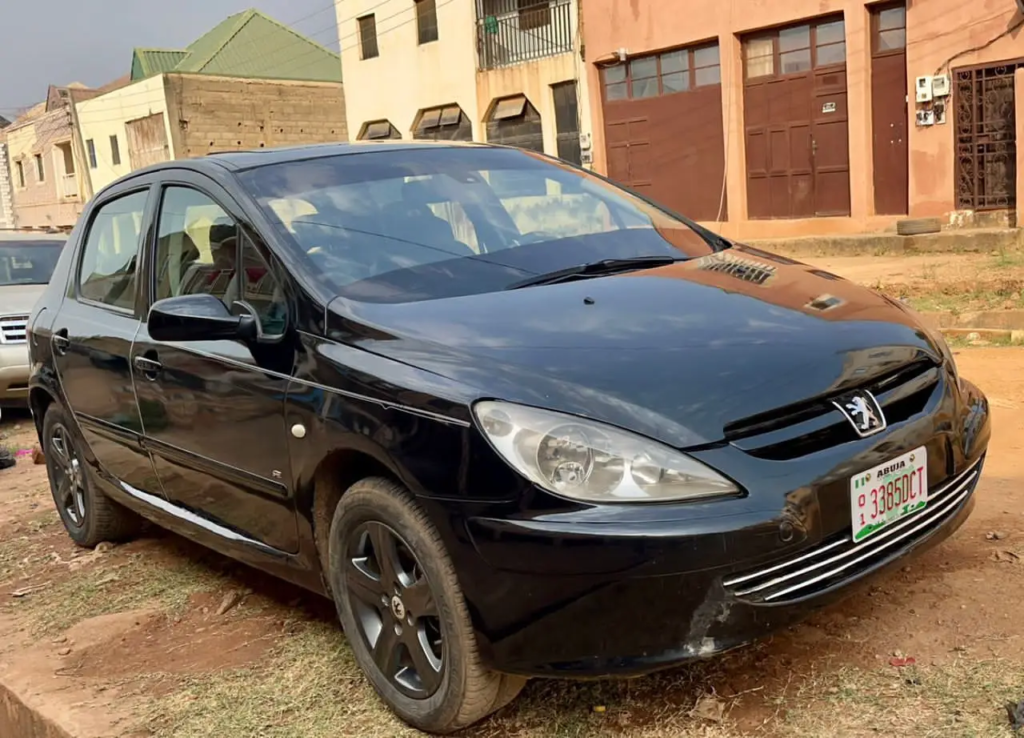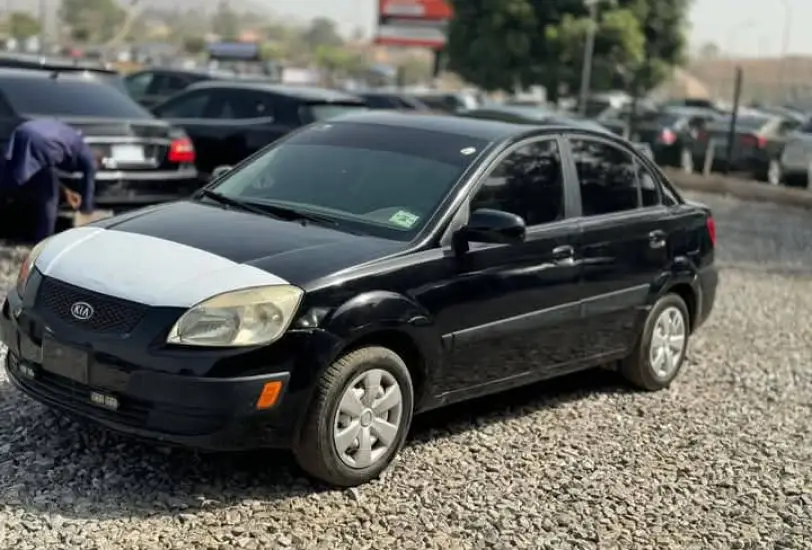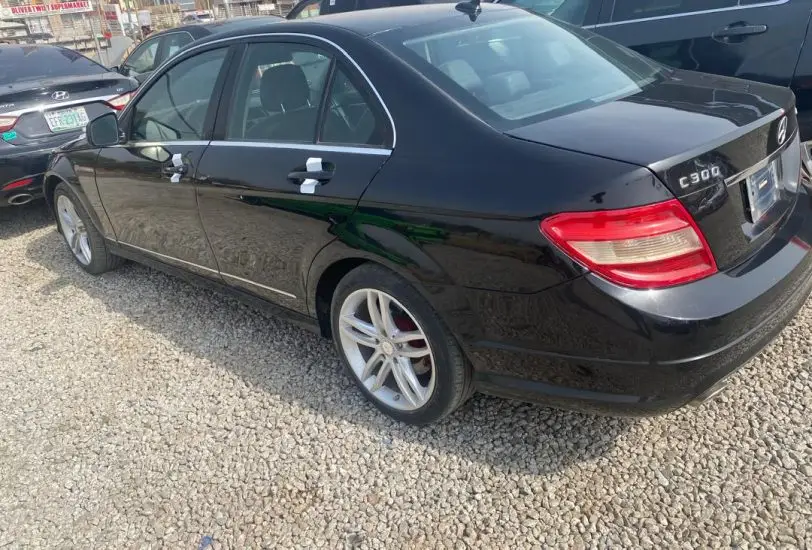You’ve seen it on the internet or at a car lot in Abuja: a 2012 Toyota Camry with a price tag that looks too high. You think, “Why? It’s more than ten years old!”
This puzzle is a big wall for people wanting to buy cars in Nigeria. The price of Tokunbo car isn’t just about how old it is or its type; a lot goes into its final price including global market trends, government policies, and the car’s own past.
Knowing these things is key to planning your budget, talking down prices, and getting a fair deal on the car you want. This guide will lay out every piece that adds at the end to the Tokunbo car prices in Nigeria.
We’ll clear up hidden costs, show the big effect of customs duty and exchange rates, and equip you with the know-how to face the market like a pro.
This guide is a part of our car buying series. To see a full look at the whole buying process, read our The Ultimate Guide to Buying Tokunbo Cars in Abuja.
The Official Price Guide: What to Expect in 2025
Before we dive into the “why,” let’s establish a baseline of “how much.” Based on extensive market data analysis from our in-house research, here is a realistic price range you can expect to pay for some of the most popular clean-title, accident-free Tokunbo models in Nigeria today.
Indicative Price Range for Popular Tokunbo Models (2025)
| Car Make & Model | Popular Year Range | Estimated Price Range (₦) |
| Toyota Camry | 2010 – 2013 | ₦8,500,000 – ₦17,000,000 |
| Toyota Camry | 2014 – 2018 | ₦14,000,000 – ₦42,000,000 |
| Toyota Corolla | 2010 – 2013 | ₦11,000,000 – ₦15,000,000 |
| Toyota Corolla | 2014 – 2018 | ₦11,500,000 – ₦19,000,000 |
| Honda Accord | 2010 – 2013 | ₦10,000,000 – ₦17,000,000 |
| Honda Accord | 2014 – 2018 | ₦14,500,000 – ₦36,000,000 |
| Toyota Highlander | 2010 – 2013 | ₦15,000,000 – ₦28,000,000 |
| Toyota Highlander | 2014 – 2018 | ₦28,000,000 – ₦40,000,000 |
| Lexus RX 350 | 2010 – 2015 | ₦16,000,000 – ₦33,000,000 |
Beyond Make and Model: The Four Major Factors That Determine Price
The table above is just a starting point. Two cars that look identical can have vastly different prices. Here are the four main factors that determine the true value of a Tokunbo car.
1. Vehicle Condition, History, and Mileage
This is the most significant variable. A car’s past life dictates its future reliability and its present value.
- “First Body” Status: A car with its original factory paint is the gold standard in the Nigerian market. It serves as a strong indicator that the vehicle has not been in a major accident, and it commands a premium price.
- Accident History: A car with a “salvage” or “rebuilt” title from its country of origin will be significantly cheaper, but it comes with immense risks of structural or electrical problems. Even a clean-title car that has undergone major bodywork and repainting will have a lower value.
- Mileage: While lower mileage generally indicates less wear and tear, it must be verifiable. A vehicle history report is crucial for cross-referencing the last reported mileage to protect against odometer fraud, a common practice used to artificially inflate a car’s price.
2. Model Year and Trim Level
The specific year and trim level dramatically affect the price. For example, a 2014 Toyota Camry XLE (the “full option” trim with features like a V6 engine, leather seats, and a sunroof) will be priced much higher than a 2014 Toyota Camry LE (the base model with a 4-cylinder engine and fabric seats). Always verify the specific trim level, as a seller might advertise a base model as a full-option to command a higher price.
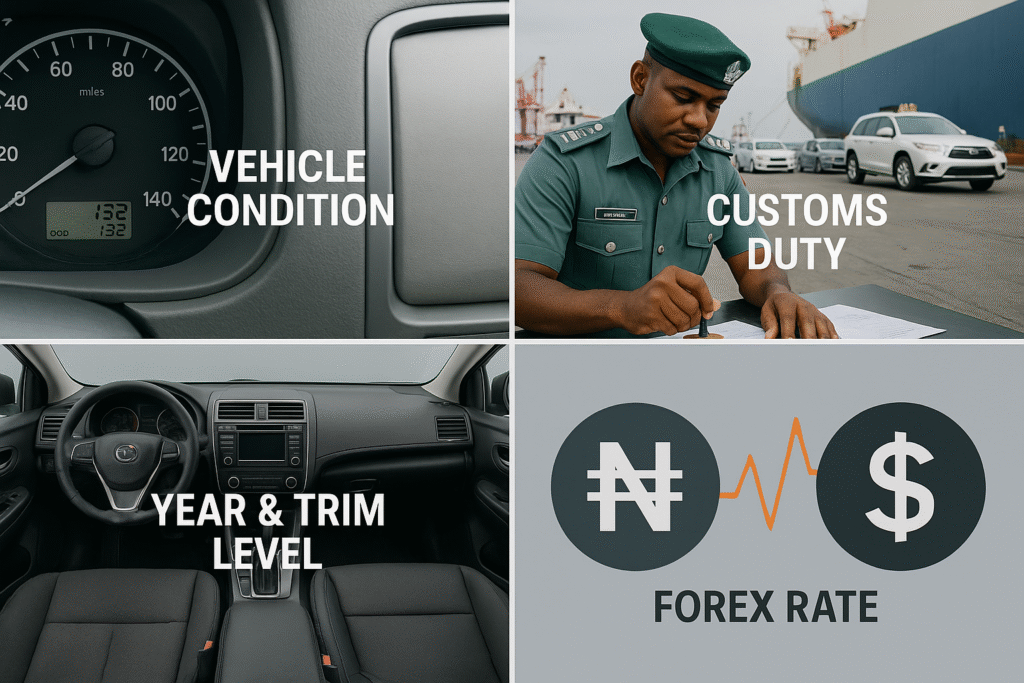
3. The Unavoidable: Customs Duty
This is a major component of a Tokunbo car’s price. The Nigerian Customs Service levies a duty on all imported vehicles, which can account for a substantial portion of the final cost. This duty is calculated based on the car’s value, model, and year. A car that has been legally imported with all duties fully paid will always cost significantly more than a smuggled vehicle. While the price of a smuggled car might seem tempting, it carries the immense risk of being impounded by customs officials at any time, leading to a total loss of your investment. Verifying the authenticity of the customs clearance documents is a non-negotiable step in the car buying process.
4. The Almighty Dollar: How Forex Rules the Market
Because Tokunbo cars are purchased overseas in foreign currency (primarily US Dollars), their landing cost in Nigeria is directly tied to the current foreign exchange (forex) rate. When the Naira weakens against the Dollar, the cost for importers to buy and ship cars increases, and this cost is inevitably passed on to the final consumer. This is why you can see the prices of all Tokunbo cars rise across the board in a matter of weeks or months, even for cars that were already sitting in the dealer’s lot. It is the single biggest external factor influencing the entire market.
For a deeper analysis of how to check a vehicle’s condition, see our Tokunbo Car Inspection Checklist.
Budgeting for the “Hidden Costs”: The Price on the Tag Isn’t the Price You Pay
One of the biggest mistakes first-time buyers make is spending their entire budget on the purchase price of the car itself. A wise buyer knows that the “sticker price” is just the beginning. You must budget for the immediate, essential costs required to make the car truly yours and road-ready. As a rule of thumb, you should set aside an additional 10-15% of the car’s purchase price for these “landing costs.”
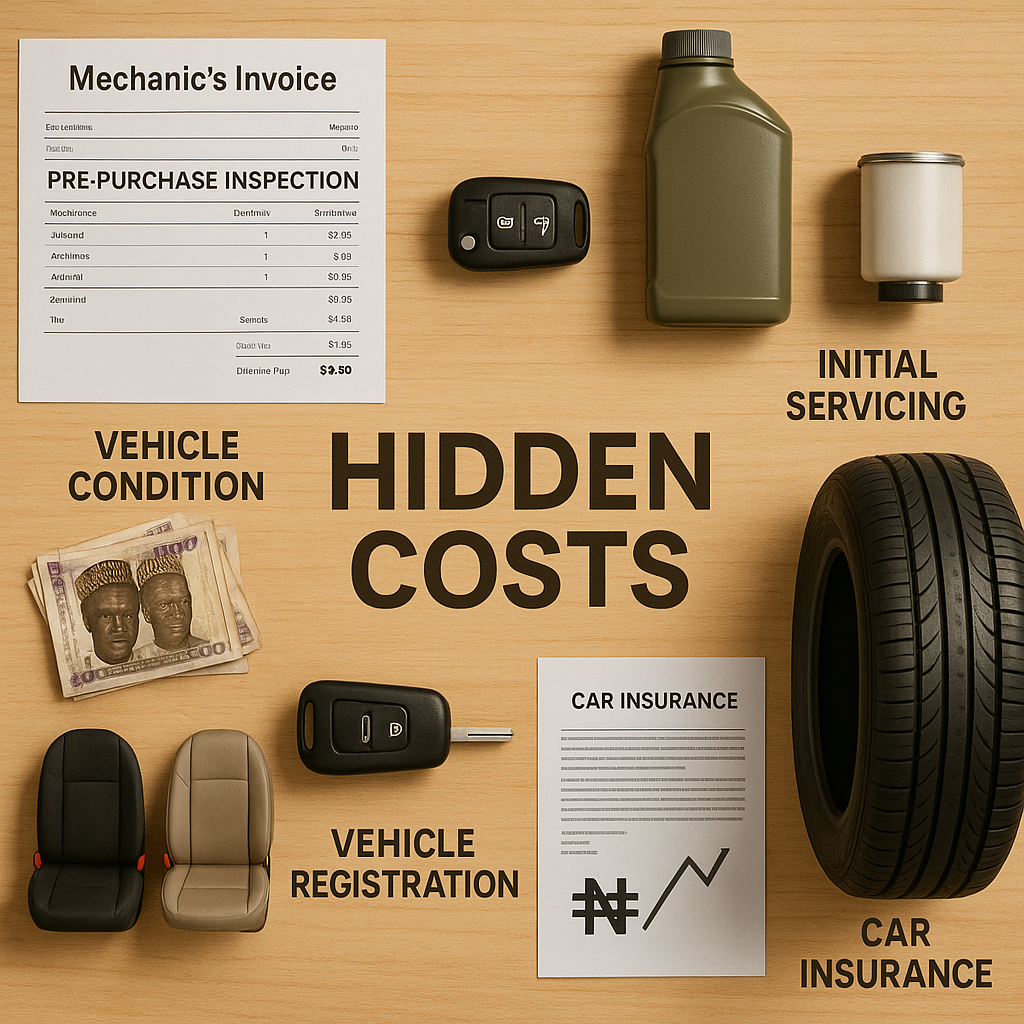
Here is a checklist of what you need to budget for after you’ve agreed on a price:
- Pre-Purchase Inspection Fee: Even if you trust the dealer, paying for your own independent mechanic to conduct a final inspection is the best money you will ever spend. This can cost between ₦20,000 and ₦50,000 in Abuja.
- Initial “Baseline” Service: Immediately after purchase, every Tokunbo car should have a full service. This includes changing the engine oil, oil filter, air filter, and transmission fluid. This establishes a new, known service history and costs between ₦40,000 and ₦80,000.
- Tyre Replacement: The tyres on a Tokunbo car have often been sitting for months during shipping and may be old or worn. Budgeting for a new set of quality tyres is a crucial safety investment. This can range from ₦200,000 to over ₦400,000 for a set of four, depending on the size and brand.
- Vehicle Registration & Number Plates: Legally registering the car in your name is a mandatory process that involves several fees. This can range from ₦50,000 to ₦150,000+, depending on the state and vehicle type.
- Car Insurance: At a minimum, you need Third-Party insurance. However, for a valuable asset like a Tokunbo car, Comprehensive Insurance is highly recommended. This typically costs between 3% and 5% of the vehicle’s total value annually.
Key Takeaways
- Forex and Customs Duty Drive Overall Prices. The main things making Tokunbo car prices high are the Dollar-to-Naira rate and the Nigerian Customs Duty. These two things, not the seller, change the end cost the most.
- Budget 10-15% Extra for “Landing Costs”. The price you first hear from the seller isn’t all you will pay. A wise buyer should plan for must-pay costs like car sign-up, first check-up, new tyres, and cover plan after buying the car.
- A “First Body” Car Costs More. In Nigeria, how a car looks is key. A car still in its first paint (“First Body”) and not hit before will always be worth much more than one that’s been painted again or fixed up.
- A “Cheap” Car Can Be the Most Expensive. A very low-priced Tokunbo car may have big issues, like unpaid Customs fees or hidden engine troubles, which can end up eating all your money later.
- Verify the Exact Trim Level to Justify the Price. The exact features of a car (like a top “XLE” compared to a basic “LE” model) can mean big price changes. Always check the model to make sure you are giving a good price for what you get.
Conclusion: Buying Smarter, Not Cheaper
Understanding the forces that shape Tokunbo car prices in Nigeria transforms you from a regular consumer into a smart buyer. A car that seems “cheap” online may have unpaid customs duties or severe hidden mechanical issues that will cost you far more in the long run. Conversely, a fairly priced vehicle from a trusted source with verified documents is not just a car; it’s a sound investment.
At Autokunbo.com, we believe in complete transparency. Our pricing reflects the true, all-in cost of sourcing high-quality vehicles and ensuring they are legally cleared and mechanically sound. Every car listing is accompanied by a detailed inspection report, so you know exactly what you’re paying for. No hidden surprises, no “wahala.” Find a car that fits your budget and our high standards today.


